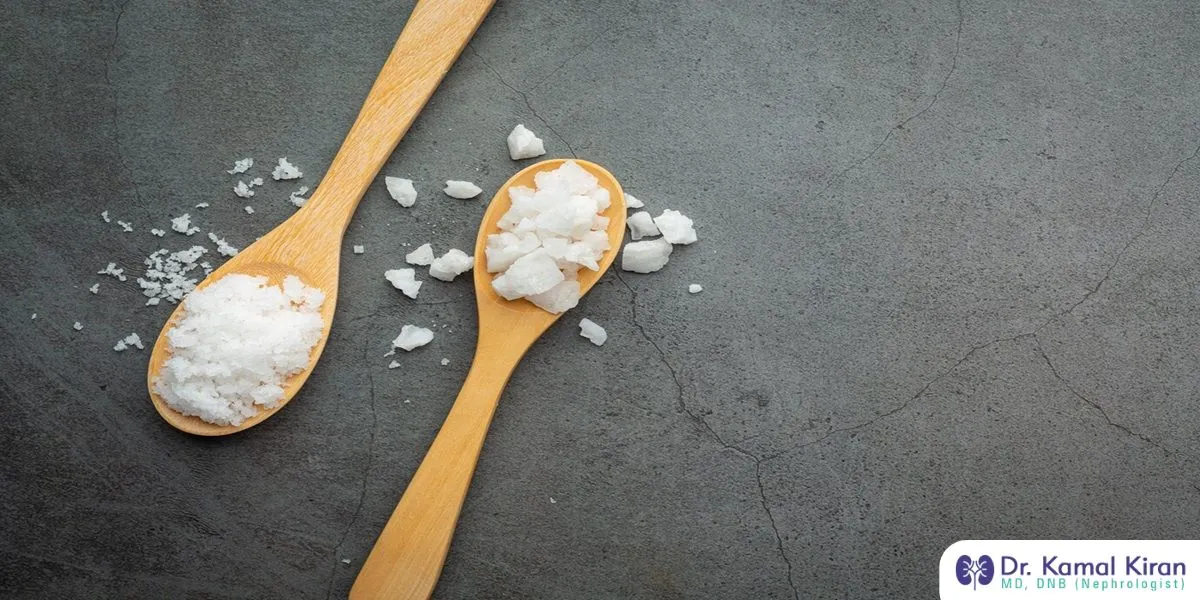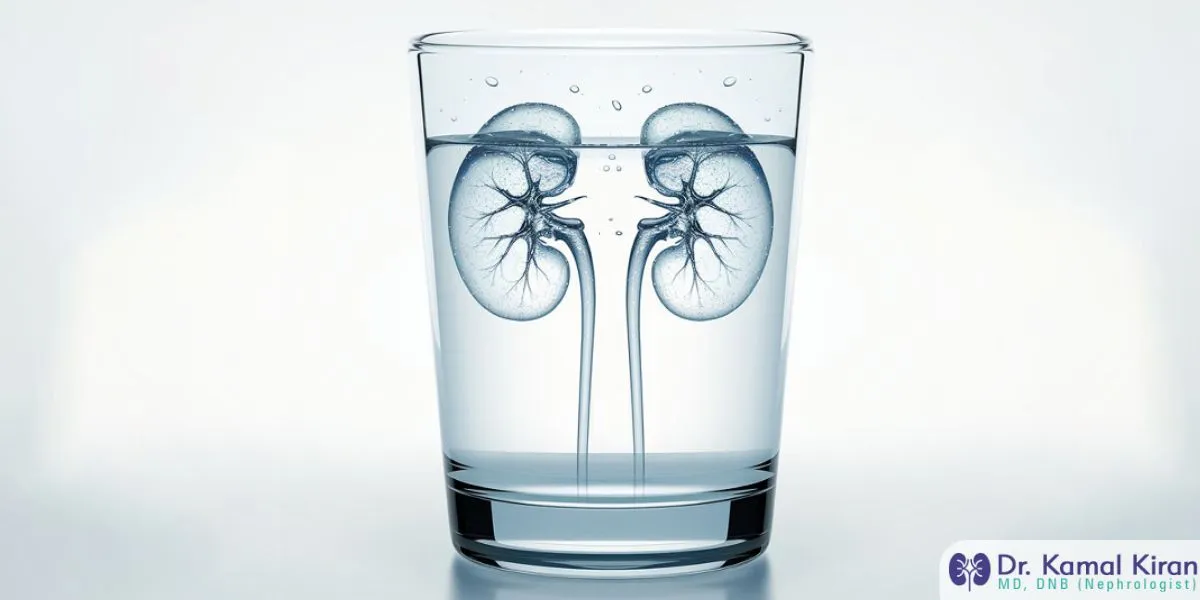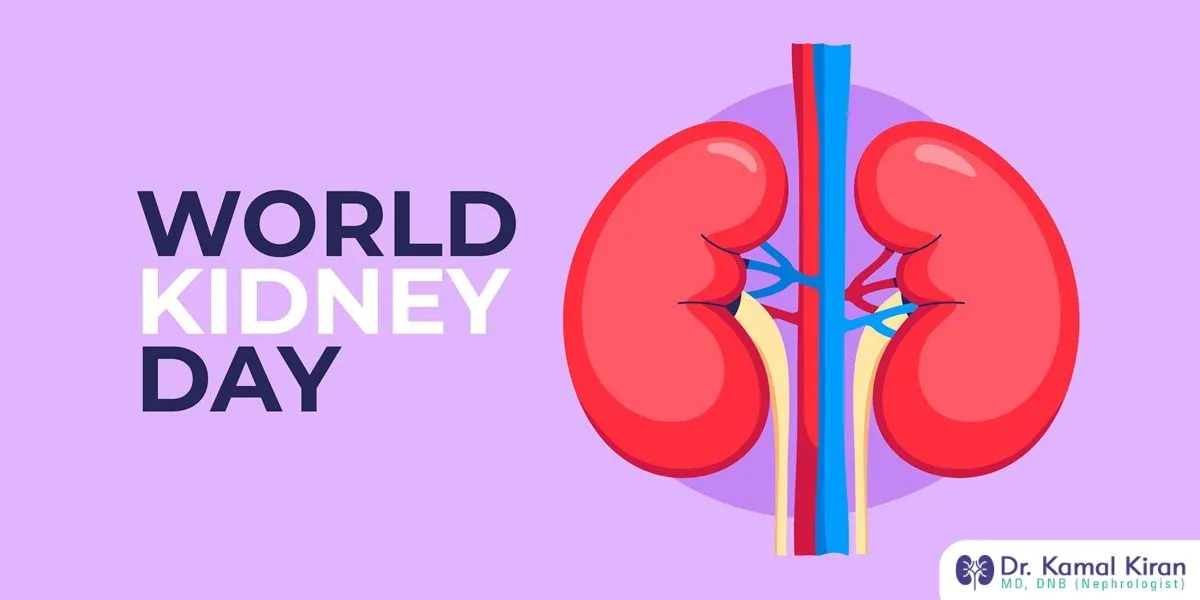
The Role of Salt in Your Diet: A Nephrologist’s Perspective
By Dr. Kamal Kiran | Mar 06 , 2025|4 min read
Salt is an essential part of our diet, yet it is often misunderstood. Beyond just enhancing the flavor of our food, salt plays a crucial role in maintaining the body’s overall balance and proper function. However, consuming too much or too little can lead to serious health issues.
As a nephrologist, I have seen both extremes: patients suffering from high blood pressure due to excess salt in their diet and those experiencing muscle cramps and fatigue from inadequate sodium intake.
So, how much salt is too much? And why should we use iodized salt in our diet? Let’s break it down.
Salt in Diet: A Delicate Balance
The main use of salt in the diet is to regulate fluid balance, support nerve function, and aid in muscle contractions. However, modern diets often contain high amounts of sodium, primarily from processed and packaged foods. While the recommended intake is less than 5 grams per day (about one teaspoon), many people unknowingly consume much more.
What Happens When You Consume Too Much Salt?
Excess salt in the diet can have long-term health effects, including:
- High Blood Pressure: Too much sodium causes the body to retain water, increasing blood volume and raising blood pressure is a major risk for heart disease and stroke.
- Kidney Strain: The kidneys filter out excess sodium. Over time, excessive intake can overwork them, leading to kidney damage.
- Fluid Retention: High sodium levels can cause swelling in the legs, bloating, and even shortness of breath at times due to fluid buildup around the lungs.
Simple Ways to Cut Down on Salt:
- Check Labels: Processed foods contain hidden sodium. Choose fresh, whole foods instead.
- Cook at Home: Controlling ingredients ensures you don’t exceed safe sodium limits.
- Use Natural Flavorings: Herbs, garlic, lemon, and spices can enhance taste without adding extra salt.
Lack of Salt in Diet: Side Effects and Risks
While excess salt is harmful, too little salt isn’t good either. Sodium is essential for nerve signalling and muscle function. A deficiency can lead to:
- Fatigue and Dizziness: When sodium levels drop, the body’s electrolyte balance is thrown off, leading to weakness, dizziness, and even mental confusion.
- Muscle Cramps: Sodium helps muscles contract properly. Inadequate intake can cause painful spasms.
- Low Blood Pressure: Insufficient sodium can lead to low blood pressure, increasing the risk of fainting.
This is why striking the right balance is key. Too much and you risk kidney strain and hypertension, too little and your body can’t function properly.
Why Should We Use Iodized Salt in Our Diet?
Iodine is a vital mineral that plays a key role in supporting thyroid function, which regulates metabolism, energy levels, and overall growth. A deficiency can lead to goitre (thyroid gland enlargement), fatigue, and developmental issues in children.
Using iodized salt in your diet is a simple and effective way of ensuring adequate iodine intake. Many countries mandate iodine fortification in table salt to prevent widespread deficiency.
Special Considerations for Kidney Patients
For those who are diagnosed with Chronic Kidney Disease (CKD), managing salt intake isn’t just about balance, it’s about survival. Since damaged kidneys struggle to filter excess sodium, a high-salt diet can lead to severe complications such as:
- Fluid Overload: Swelling in the legs and difficulty breathing due to fluid buildup.
- Worsening Kidney Function: Excess sodium accelerates kidney decline.
- Increased Heart Risk: CKD patients already have a higher risk of heart disease, and high sodium makes it worse.
For CKD patients, sodium intake should be strictly controlled. Usually 2 grams per day is a limit or as a doctor recommends. Avoiding processed foods, reading food labels, and working with a dietitian can help maintain a kidney-friendly diet.
Final Thoughts on Making the Right Choice
Salt is vital for our body, but too much can lead to long-term health concerns, while the right amount supports overall well-being.
Whether you’re in good health or managing kidney disease, understanding how sodium affects your body is key to making informed dietary choices. Next time you reach for the salt shaker, remember your kidneys will thank you for a little restraint.

